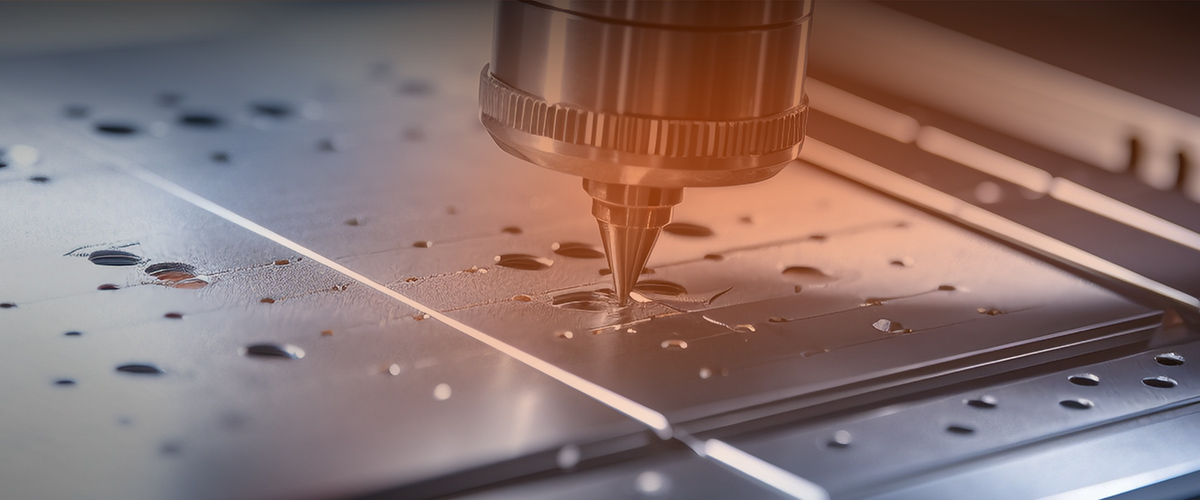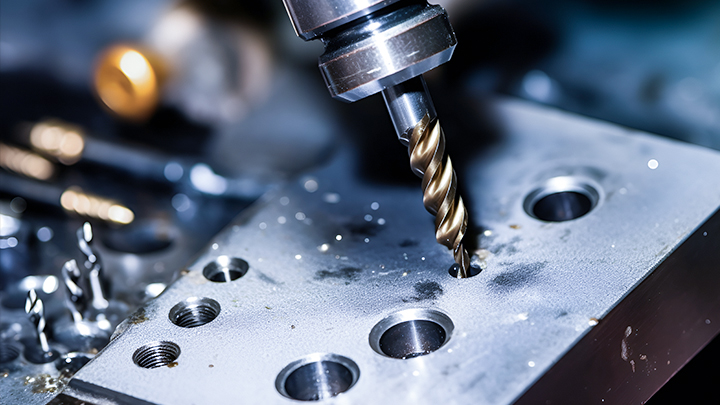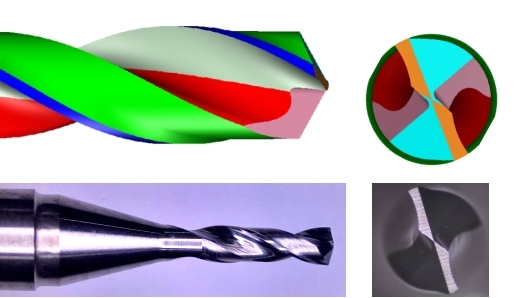


Titanium alloys are extremely difficult to process due to their high hardness, low thermal conductivity, strong chemical activity, and work hardening properties.
The main processing difficulties for drilling titanium alloys include:

The poor thermal conductivity of titanium alloy makes it difficult to dissipate the heat generated during drilling, which can easily cause tool overheating and rapid wear;

During the drilling process of titanium alloy, it is difficult to achieve chip breaking effect. The chips are easily wrapped around the tool and difficult to discharge, which can easily lead to tool jamming and breakage, and have a serious impact on machining accuracy and quality;

Titanium alloys are prone to work hardening during the cutting process, which increases the hardness of the machined surface and exacerbates tool wear;

Titanium alloys have high chemical activity and are prone to react with oxygen in the air, forming an oxide layer that may increase friction and wear during the cutting process;

Due to the high strength and low thermal conductivity of titanium alloys, greater cutting force is required during drilling, which places higher demands on the strength and rigidity of cutting tools;

During the cutting process, it is easy for chips to bond with the tool, forming chip deposits that affect the quality of the machined surface and can easily cause adhesive wear of the tool;

The elastic modulus of titanium alloy is low, and the rebound during processing is more severe, especially when the thickness of the processed object is thin, the rebound problem will be more serious, affecting the drilling accuracy.
